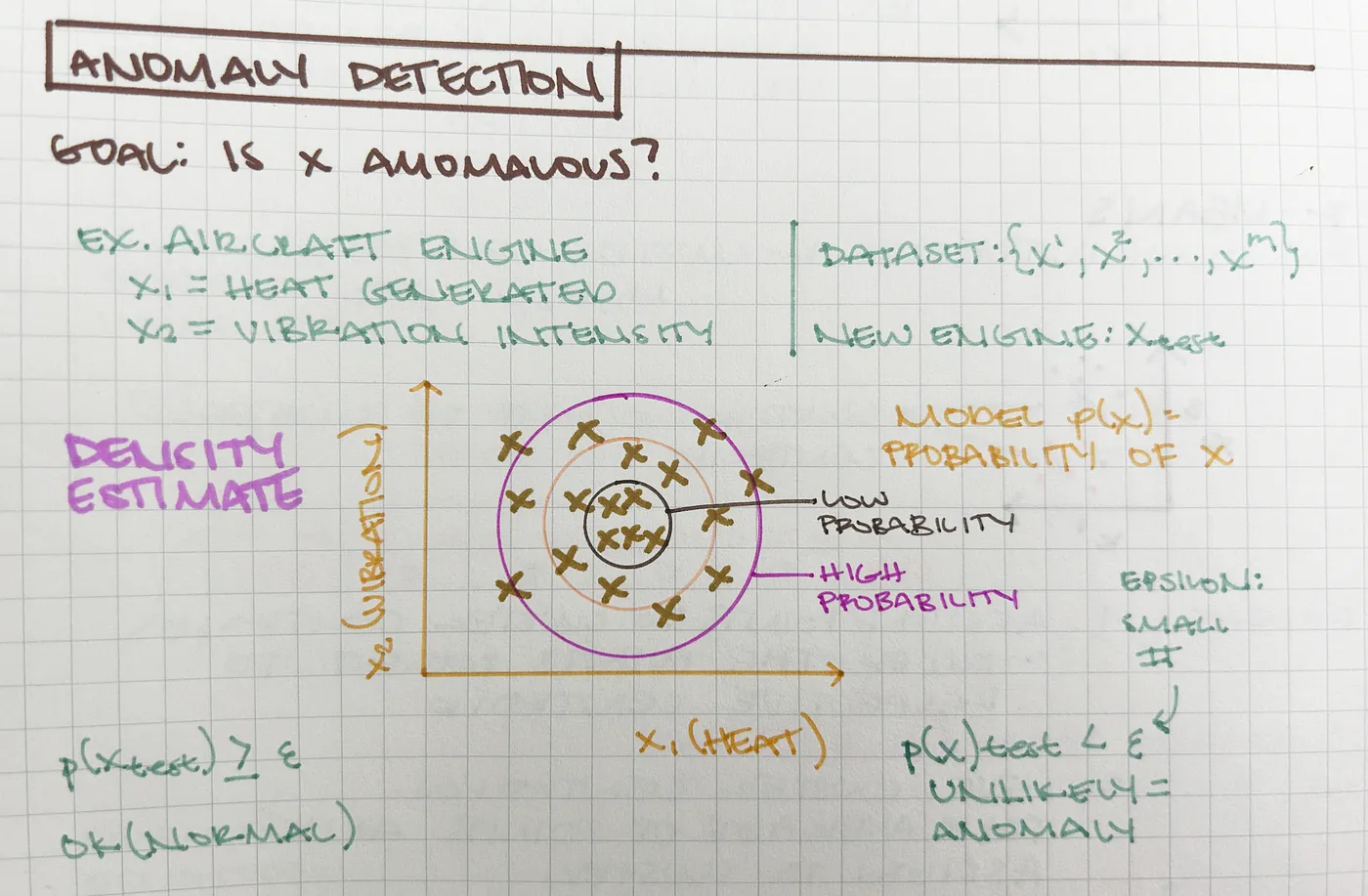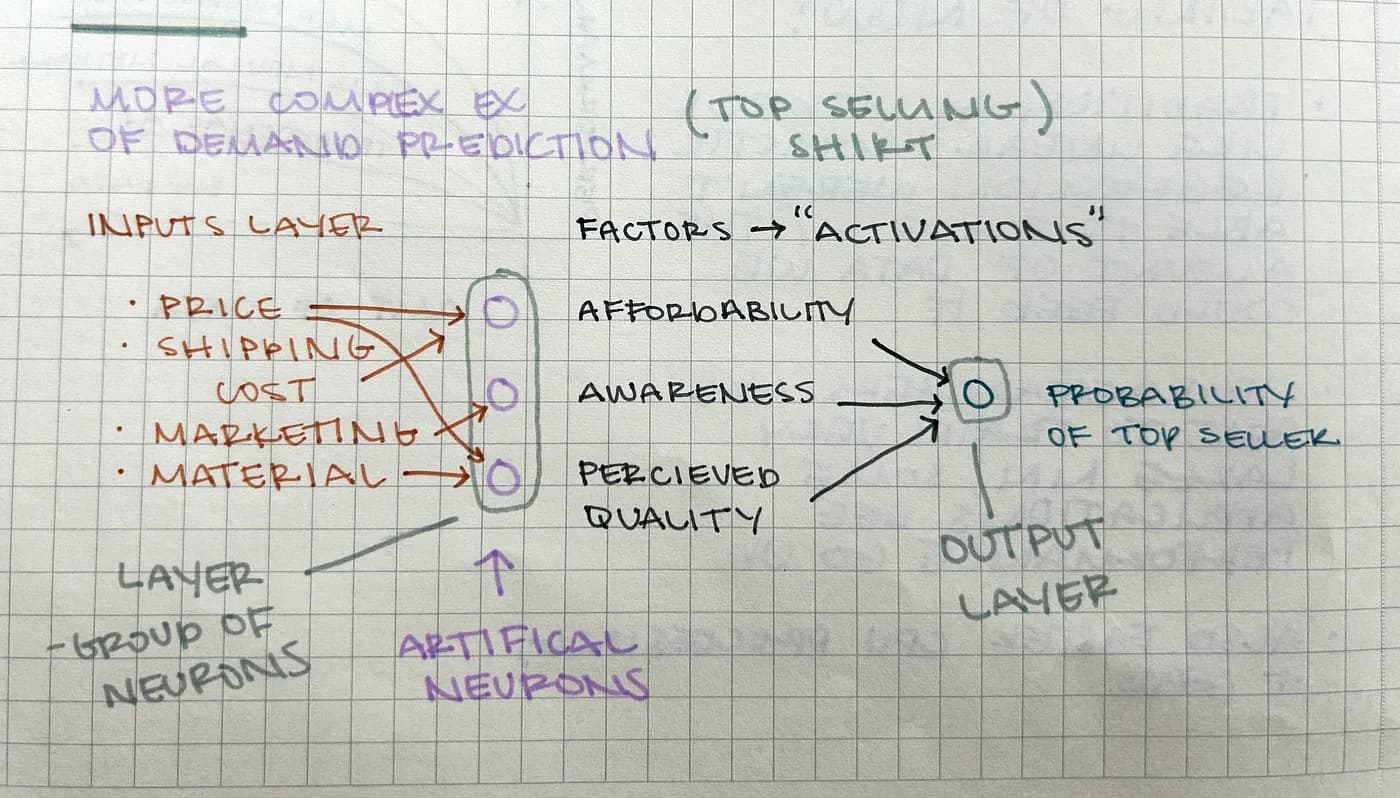AI for Dummies: Review of Andrew Ng's AI Specialization

If you're a UX Researcher like myself, your news feeds are probably telling you to be fearful of losing your job to AI.
Since AI will not be leaving the zeitgeist in the foreseeable future, I wanted to dedicate some time in learning and experimenting with AI to be well-equipped to leverage it in my future work.
So let's do what we researchers do best and break this down. Here's my review of the esteemed online course from one of Stanford's leading professor in AI.
Overall, if you've dabbled in some coding and you're not scared of the y = mx + b slope equation, then you should take this course.
(Bonus if you're comfortable with Python, worked with NumPy and Pandas before too!)

Content Divided into Highly Digestible Segments
The format is great for learning. Other online courses I've taken usually have 1-hour long videos for each topic. This course uses 3–5 short videos that are 5–15 minutes in length for each section. If you're easily distracted like me you can always speed up the video pace as well.
Each lesson uses a lot of visual aids. Short multiple choice quizzes and labs are sprinkled along the course for you to practice your learning. (Some labs are optional)
Andrew is an Excellent Teacher
This has been echoed many times, but what makes this course stand out is how Andrew is able to break things down into simple pieces of information to later build on the more complex topics.
Andrew often will be clear on which skills and equations are okay to understand at a beginner level versus a professional level. Andrew explains the key aspects of each model sufficiently to enable comprehension of its purpose. Simultaneously, he gives us permission to leave the development and refinement of the algorithms to the Professors and PhD students.
Like a calculator to long division, there are libraries you can use for a lot of the primary functions for these models.

Elevate Your Thought Process with Computational Methods
The origins of neural networks started with the motivation of building algorithms that mimic how our brains work. While modern artificial neural networks aren't exact replicas of biological neural networks, they still retain some of the fundamental principles inspired by neuroscience.
Us UX Researchers already have deep understanding of psychology, neuroscience, and decision-making provides a strong foundation for our work. Just as you gain insights and inspiration from conversations with customers, understanding how algorithms work and how they "think" can also inspire new approaches and perspectives in your work.
By grasping the logic behind algorithms and how they process data to make decisions or predictions, you can gain valuable insights into different patterns of logic.
This understanding can spark creativity, as you may discover novel ways to leverage computational methods to enhance your human thinking.
Build a Foundation for Further Exploration in AI
Having completed the AI Specialization, I've started on the NLP Specialization also provided by DeepLearning.AI. While the NLP course touches on the underlying models utilized in its projects, it lacks the depth of explanation found in the AI Specialization.
In contrast, the general AI course delves into the intricacies of the algorithms employed in each project. I'm finding it much easier to get through this NLP content with the foundational knowledge I gained from this course.
Downloadable Labs for Future Reference
The labs are facilitated through Jupyter Notebooks, offering a comprehensive outline of code required for specific equations and functions in each assignment. These environments can be downloaded and set up locally, allowing you to utilize these frameworks in the future.
Cost
Last year in 2023 when I started the course, it was $50/month. It took me a little under 3 months to get through all the content.
Overall, if you possess some coding experience and a curiosity about AI, this course provides an excellent starting point.